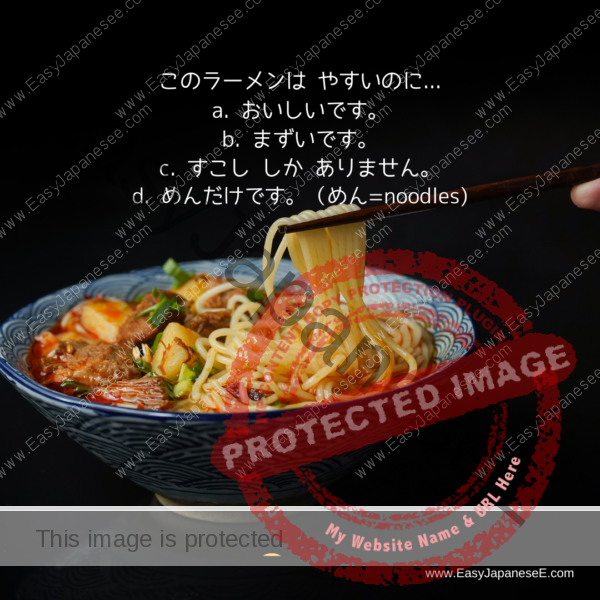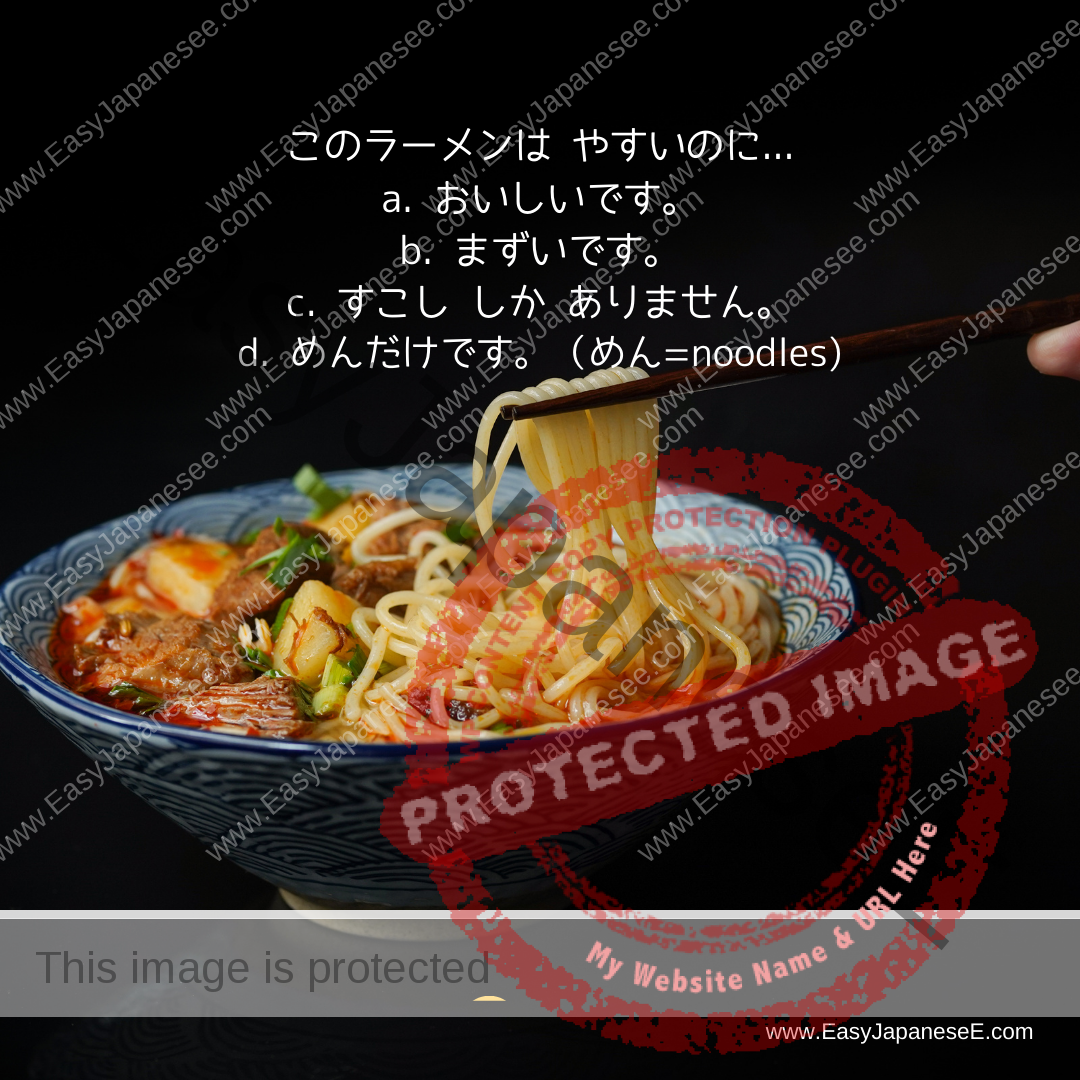
Today’s Question
Which of the phrases a, b, c or d, will follow このラーメンは やすいのに ___ best?
a. おいしいです。
b. まずいです。
c. すこし しか ありません。
d. めんだけです。
Today’s Grammar Point: ~のに
~のに means “although ~,” so the first part and the second part have to be somewhat contradictory. In that sense ~のに is similar to ~が, ~けど or ~けれど. However, ~のに is different from ~が, ~けど or ~けれど because:
- ~のに can only be used for connecting “facts.” ~のに cannot be followed by a demand, a request, a question or the narrator’s opinion as these are not “facts.”
- ~のに implies the narrator’s “surprise” or “disappointment.” ~のに cannot be used when the narrator is neither surprised nor disappointed.
Connection
- [plain form verb] + のに
- [いadjective(い/かった)] + のに
- [なadjective] + な/だった + のに
- [noun] + な/だった + のに
Examples
あの うどんは たかいのに まずいです。
Although that udon noodle is expensive, it tastes awful.とおいのに わざわざ きてくれて ありがとう。
Thank you for coming all the way even though it is so far.そのもんだいは やさしかったのに まちがえました。
Although the question was easy, I made a mistake.しんせんなのに おいしくないです。(しんせん:なadjective)
Although it is fresh, it doesn’t taste good.むすこはまじめなのに成績(せいせき)がよくない。(まじめ:なadjective)
My son is studious, but his marks are not good.テストはかんたんだったのに ふごうかくになりました。
Although the test was easy, I failed.あの人は医者(いしゃ)なのに注射(ちゅうしゃ)がきらいです。(いしゃ:noun)
Although he is a doctor, he doesn’t like injections.きのうは休日(きゅうじつ)だったのに、しごとに行(い)かなければなりませんでした。
Yesterday was a holiday but I had to go to work.あめが ふっているのに ハイキングに いきました。
あめが ふっていたのに ハイキングに いきました。
Although it was raining, I went hiking.デモはきんしされているのに メルボルンでデモがありました。
デモはきんしされていたのに メルボルンでデモがありました。
Although demonstrations have been/was prohibited, there was a demonstration in Melbourne.てがみを かいたのに、だすことが できませんでした。
Although I have written a letter, I was not able to mail it.
Examples when ~のに cannot be used
(X) 雨がふっているのに、傘をささないでください。
(✓) 雨がふっていますが、傘をささないでください。
Please do not use an umbrella even though it is raining. – のに cannot be followed by a request.(X) 規則があるのに規則を守りますか。
(✓)規則があるけど規則を守りますか。
There are rules but would you follow them? – のに cannot be followed by a question.(X) このスカートはちょっと長いのにちょうどよい。
(✓) このスカートはちょっと長いけれどちょうどよい。
This skirt is a bit long but is a perfect fit. – the narrator is neither surprised nor disappointed.
The answer to Today’s question: a. おいしいです
このラーメンは やすいのに = Although this ramen is cheap
a. おいしいです = is delicious
b. まずいです = is awful
c. すこし しか ありません = has only a small amount
d. めんだけです = has noodles only
a. is the only one contradicting with “this ramen is cheap” and the sentence implies the narrator’s surprise.
For more study material for JLPT N4 exam, please visit JLPT N4 Grammar and Vocab and JLPT N4 Kanji pages.

